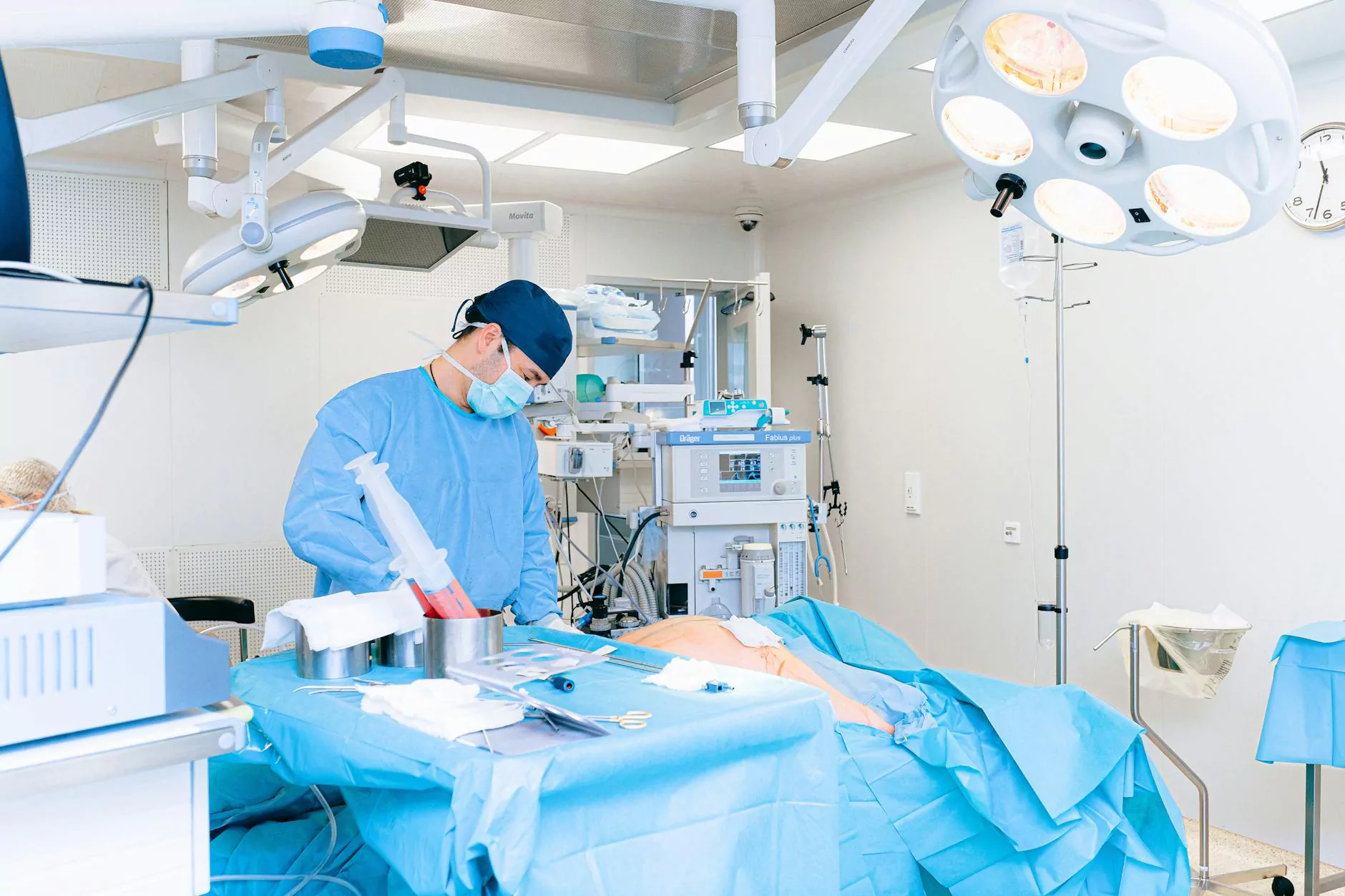Lung Cancer Operation: Comprehensive Guide to Understanding Treatment Options

Lung cancer remains one of the leading causes of cancer-related deaths globally. The journey from diagnosis to treatment can be daunting for patients and their families. This article aims to provide a thorough understanding of the lung cancer operation process, from initial diagnosis to post-operative care, emphasizing the quality of life and the options available at leading medical centers like Neumark Surgery.
Understanding Lung Cancer
Lung cancer primarily occurs in two forms: Non-small cell lung cancer (NSCLC) and Small cell lung cancer (SCLC). Understanding the type of lung cancer is pivotal in determining the best treatment options. Here's a brief overview:
- Non-small cell lung cancer (NSCLC): This is the most common type, making up about 85% of all lung cancer cases. It includes several subtypes such as adenocarcinoma, squamous cell carcinoma, and large cell carcinoma.
- Small cell lung cancer (SCLC): This rarer form is known for its rapid growth and is often linked to smoking. It's typically more aggressive and presents a different treatment approach.
Diagnosing Lung Cancer
Effective treatment begins with early and accurate diagnosis. The following methods are commonly employed in diagnosing lung cancer:
- Imaging Tests: CT scans, PET scans, and X-rays help visualize the lungs and can indicate abnormal growths.
- Biopsy: A definitive diagnosis is made through a biopsy, where a small sample of the tumor is examined for cancerous cells.
- Blood Tests: While not diagnostic, blood tests can help assess overall health and organ function.
When is a Lung Cancer Operation Necessary?
The decision for a lung cancer operation is influenced by various factors:
- Stage of Cancer: Surgery is typically performed when cancer is localized and has not spread to other parts of the body.
- Type of Lung Cancer: NSCLC patients may have different surgical options than SCLC patients.
- Overall Health: The patient's overall health and lung function play a critical role in determining if surgery is feasible.
Types of Lung Cancer Operations
There are several surgical options for lung cancer, each varying based on the type, location, and stage of the cancer:
1. Lobectomy
A lobectomy involves the removal of a lobe of the lung affected by cancer. This is the most common procedure for early-stage NSCLC and is associated with the best outcomes.
2. Pneumonectomy
A pneumonectomy entails the removal of an entire lung. This is more extensive and is usually indicated for larger tumors that cannot be removed through lobectomy.
3. Wedge Resection
This operation involves the removal of a small section of lung tissue around a tumor and is often considered for smaller tumors.
4. Video-Assisted Thoracoscopic Surgery (VATS)
VATS is a minimally invasive surgical technique that results in smaller incisions, quicker recovery, and less postoperative pain. It is suitable for selected patients with early-stage lung cancer.
Preparing for Lung Cancer Surgery
Preparation for a lung cancer operation is critical to ensure optimal outcomes. Key steps include:
- Pre-operative Assessment: A thorough assessment, including imaging and pulmonary function tests, ensures the patient is fit for surgery.
- Smoking Cessation: Quitting smoking before surgery significantly improves recovery and reduces complications.
- Nutrition and Health Optimization: Maintaining a healthy diet and managing any co-existing health conditions is vital.
The Surgery: What to Expect
On the day of the surgery, patients can expect the following:
- Anesthesia: General anesthesia will be administered to ensure the patient is comfortable and pain-free during the procedure.
- The Operative Procedure: The surgeon will access the lung through the chest wall and remove the affected tissue, along with a margin of healthy tissue.
- Monitoring and Recovery: Post-surgery, patients are closely monitored in a recovery unit before being transferred to a hospital room.
Post-operative Care
Post-operative care is crucial for a successful recovery after a lung cancer operation. Here are some important aspects:
- Pain Management: Patients will be provided with pain relief medications to manage discomfort.
- Chest Physiotherapy: Techniques to help clear lung secretions and promote breathing are commonly employed.
- Follow-Up Appointments: Regular follow-ups are essential for monitoring recovery and detecting any signs of recurrence.
- Supportive Services: Psychological support and counseling may be beneficial to help cope with the emotional aspects of cancer diagnosis and treatment.
Understanding Recovery and Lifestyle Changes
Recovery times can vary, but many patients are encouraged to start light activities shortly after surgery. Here are additional considerations:
1. Physical Activity
Incorporating gradual physical activity into the recovery process helps enhance lung function and overall health.
2. Nutrition
A balanced diet rich in fruits, vegetables, proteins, and whole grains promotes healing and enhances immune function.
3. Emotional Well-being
Support groups and therapy can provide valuable assistance in coping with the psychological effects of lung cancer.
Potential Complications After Lung Cancer Surgery
While many patients recover without significant issues, some complications may arise:
- Infections: Post-surgical infections of the lungs or incisions can occur and may require treatment.
- Pneumonia: Patients are at risk of pneumonia, requiring careful monitoring and intervention.
- Atelectasis: Partial or complete collapse of the lung can happen, often due to fluid accumulation.
Long-term Outlook and Survival Rates
The long-term survival rates following a lung cancer operation greatly depend on several factors:
- Stage at Diagnosis: Earlier stages typically yield better outcomes.
- Type of Lung Cancer: NSCLC generally has a better prognosis compared to SCLC.
- Overall Health and Lifestyle: Maintaining a healthy lifestyle and regular follow-ups enhance survival rates.
Innovative Treatment Options and Research
Advancements in medicine offer promising alternatives and complementary treatments to surgery:
- Targeted Therapies: These focus on specific cancer cell characteristics, thereby reducing damage to healthy cells.
- Immunotherapy: Utilizing the body's immune system to fight cancer has shown potential in various lung cancer types.
- Clinical Trials: Participating in trials may provide access to cutting-edge therapies.
Your Partner in Lung Cancer Care: Neumark Surgery
At Neumark Surgery, we prioritize patient-focused care, utilizing the latest technology and surgical techniques to treat lung cancer effectively. Our multidisciplinary team works together to tailor individualized treatment plans, ensuring that each patient receives comprehensive care throughout their journey.
Conclusion
The path to recovery from lung cancer is challenging, but understanding the lung cancer operation process, treatment options, and post-operative care can empower patients and their families. By choosing expert care at established medical centers like Neumark Surgery, patients can approach treatment with confidence, supported by a team committed to their health and well-being.
For more information or to schedule a consultation, visit Neumark Surgery today!









